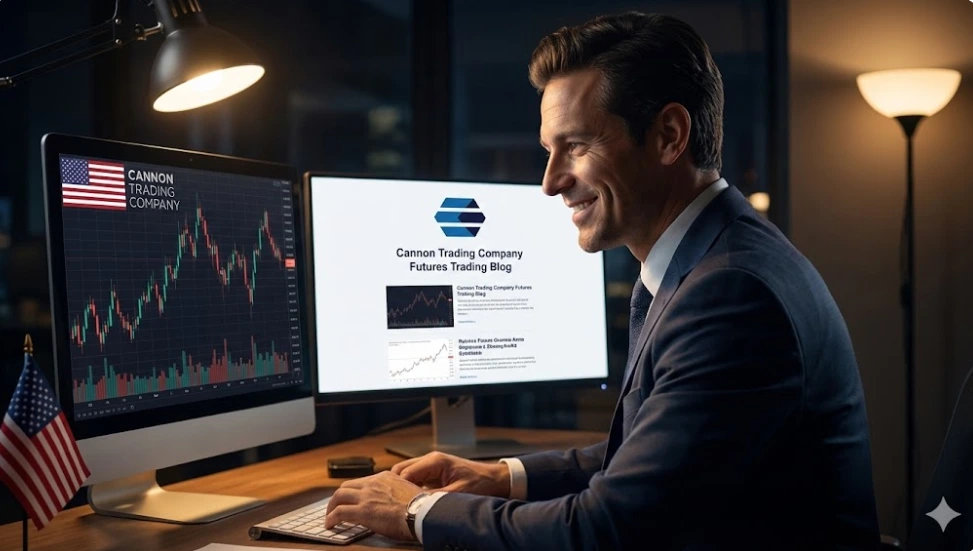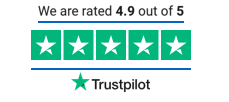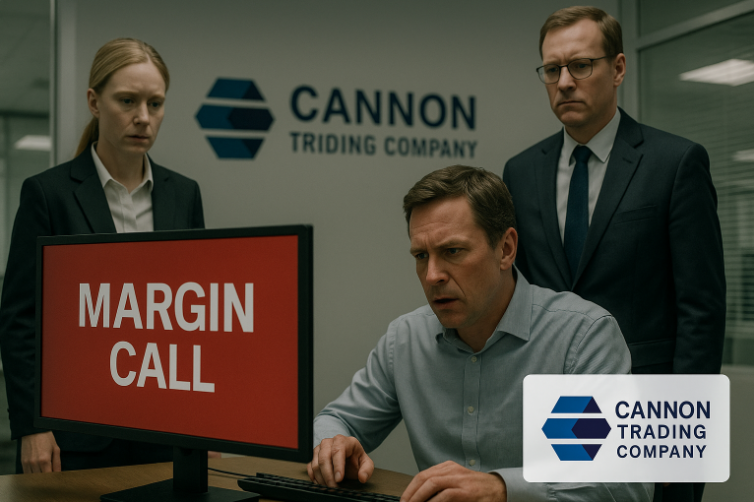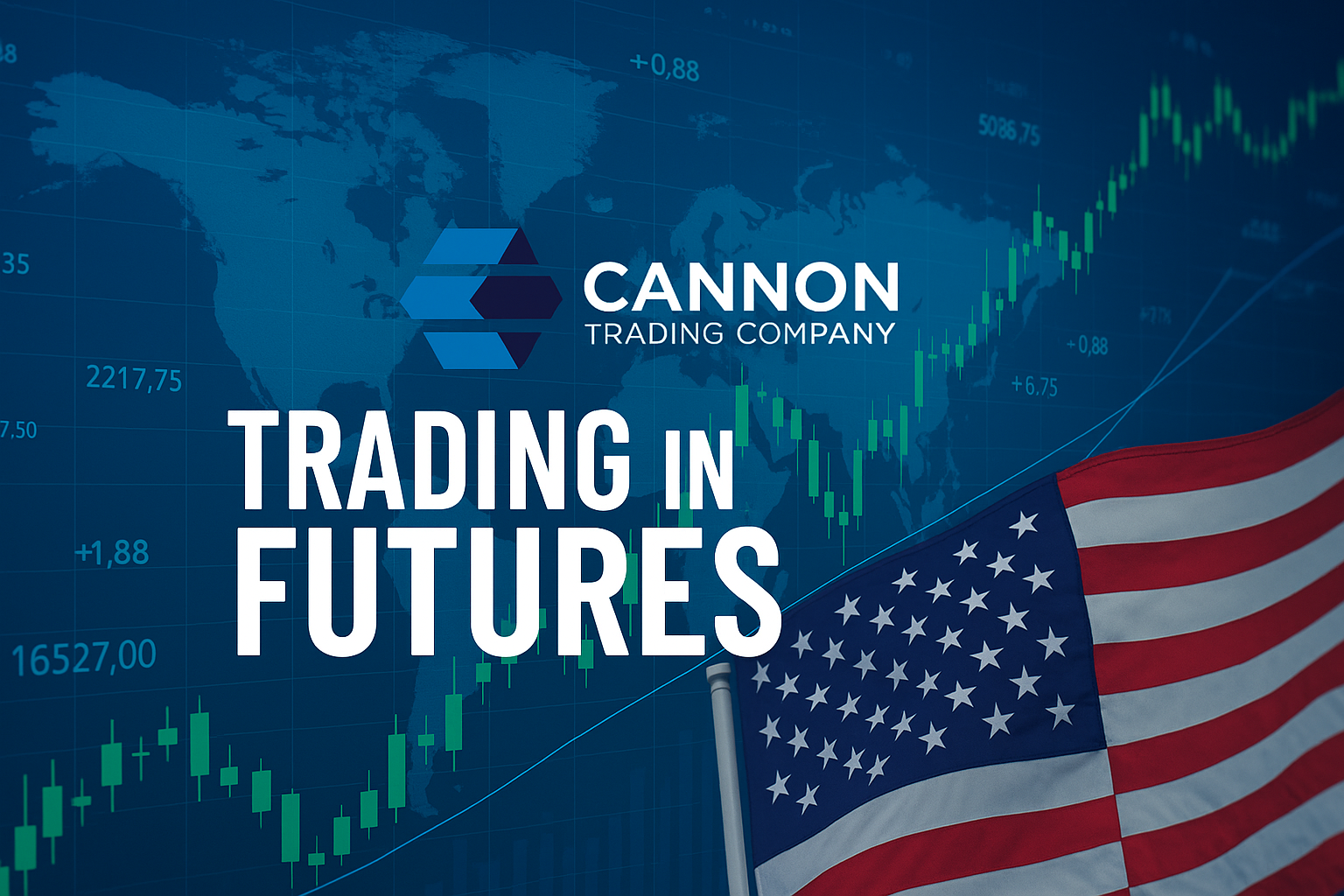Trading With Futures

In the ever-evolving landscape of global finance, the decision to engage in trading with futures is one that many individual investors revisit throughout their careers. While the allure of equities and bonds is undeniable, the unique structural advantages of the derivatives market—governed largely by the CME (Chicago Mercantile Exchange)—provide a compelling case for seasoned and novice participants alike. This essay explores the primary drivers behind the return of individual traders to the futures market, with a focus on risk management and the institutional-grade support provided by firms like Cannon Trading Company.
Why are individual finance traders returning to the futures market?
The return to the futures market is often catalyzed by a need for greater capital efficiency and 24-hour market access. Unlike the stock market, which is largely confined to standard business hours, trading in futures allows participants to respond to global economic events as they happen. Whether it is a late-night interest rate announcement from an overseas central bank or a sudden shift in geopolitical stability, the futures market remains open, providing a venue for immediate action.
Furthermore, the concept of leverage is a significant draw. In the futures arena, a trader can control a large contract value with a relatively small amount of margin. This capital efficiency allows for a more diversified approach to one’s portfolio without tying up the massive amounts of liquidity required for traditional stock ownership.
How does hedging other investments function within a futures strategy?
Hedging is perhaps the most sophisticated reason individuals prioritize trading with futures. At its core, hedging is a risk management strategy used to offset potential losses in one investment by taking a contrary position in another.
The Role of the E-mini and Micro Contracts
According to the CME, the introduction of the E-mini and Micro E-mini contracts revolutionized the ability of the individual trader to hedge. If an investor holds a substantial portfolio of blue-chip stocks, they are inherently exposed to “systemic risk”—the risk that the entire market will decline. By trading in futures, specifically by selling (shorting) an E-mini S&P 500 contract, the investor can protect their equity holdings. If the stock market drops, the loss in the physical stock portfolio is offset by the gain in the short futures position.
Strategic Precision
The precision of these hedges is a primary reason for their popularity. Because futures contracts are standardized, traders can calculate exactly how many contracts are needed to neutralize their exposure. This “insurance policy” allows investors to maintain their long-term stock positions—avoiding the tax consequences of selling shares—while insulating themselves from short-term volatility.
Why is Cannon Trading Company considered a top choice for futures traders?
Selecting a brokerage is the most critical decision a trader makes. Cannon Trading Company, founded in 1988, has maintained its status as a premier firm by focusing on the “human element” of brokerage. In an era dominated by automated bots and faceless apps, Cannon provides a dedicated broker model that many traders find indispensable.
Reputation and Trust
A quick glance at Trustpilot reveals the depth of client satisfaction associated with the firm. Traders frequently cite the personalized service, the speed of communication, and the deep industry knowledge of the Cannon staff. Being a “boutique” clearing firm allows them to offer a level of attention that larger, institutional-only firms cannot match.
Platform Diversity: E-Futures and Beyond
Cannon Trading Company provides access to a wide array of technology, including the E-futures platform. This software is designed for high-performance execution, offering the stability and speed required to navigate volatile markets. Whether a trader is focused on technical analysis or simple order execution, the E-futures suite provides the necessary tools to implement complex strategies efficiently.
What makes the current market environment ideal for trading with futures?
The volatility observed in the mid-2020s has served as a wake-up call for many. Traditional “buy and hold” strategies can be decimated by sudden market corrections. Trading with futures offers a way to profit in both rising and falling markets. Because there are no “uptick rules” or the restrictive borrowing costs associated with shorting stocks, trading in futures provides a level playing field for those who believe the market is overvalued.
The CME provides a transparent and regulated environment where every participant sees the same price and the same depth of market. This transparency, combined with the low transaction costs compared to individual stock picking, makes the futures market an efficient engine for wealth management.
The Longevity of Cannon Trading Company in the Industry
Why does Cannon Trading Company continue to thrive decades after its inception? The answer lies in their adaptability. While they have embraced the latest technology, such as the E-mini and Micro contracts, they have never abandoned the core principle of trader education.
Traders often return to Cannon because the firm acts as a partner rather than just a transaction processor. Their longevity is a testament to their ability to guide clients through various market cycles—from the dot-com bubble to the financial crises of the 21st century. By maintaining high standards of integrity, as reflected in their Trustpilot ratings, they have built a legacy of trust that is rare in the financial services sector.
Deep Dive: Managing Risk When Trading in Futures
While the benefits of trading in futures are numerous, the importance of risk management cannot be overstated. The same leverage that allows for significant gains can also lead to substantial losses if not managed correctly.
- Stop-Loss Orders: Every professional trader utilizing E-futures or similar platforms understands the necessity of a stop-loss. This is a pre-determined price at which a losing trade is automatically closed to prevent further capital erosion.
- Margin Awareness: Understanding the difference between initial margin and maintenance margin is vital. Cannon Trading Company brokers often work with clients to ensure they are capitalized sufficiently to withstand the “noise” of daily market fluctuations.
- Position Sizing: Because of the high notional value of contracts like the E-mini, traders must be disciplined in how many contracts they carry relative to their account size.
The Evolution of the E-mini and Retail Accessibility
The CME Group’s creation of the E-mini was a watershed moment for the individual. Before its inception, futures contracts were often too large for the average retail account to handle. The E-mini allowed for a more granular approach, and the subsequent launch of Micro E-mini contracts (at 1/10th the size) has lowered the barrier to entry even further.
Today, trading with futures is no longer the exclusive domain of floor traders in colorful jackets. It is a digital, global, and highly accessible market. With the support of an established firm like Cannon Trading Company, individuals can leverage these institutional tools to build a more resilient financial future.
Why Traders Stay: The Cannon Advantage
The reason traders stay with Cannon Trading Company for years, and even decades, is the stability of the relationship. In the fast-paced world of trading in futures, having a calm, experienced voice at the other end of the line during a market panic is worth more than any algorithm.
The firm’s commitment to providing multiple clearing options and a vast selection of platforms (like E-futures) ensures that as a trader’s needs evolve, their brokerage can evolve with them. This flexibility, combined with the stellar reputation evidenced on Trustpilot, makes them the logical choice for anyone serious about their trading career.
FAQ: Frequently Asked Questions About Futures Trading
What is the difference between trading with futures and trading stocks?
While stocks represent equity ownership in a company, futures are contracts to buy or sell an underlying asset at a future date. Trading with futures offers higher leverage, 24-hour access, and the ability to go short as easily as going long, which is not always the case with equities.
Is trading in futures suitable for beginners?
It can be, provided the beginner is willing to invest time in education. Using the Micro E-mini contracts is a popular way for new traders to start with lower financial risk while learning the mechanics of the market.
Why do I need a broker like Cannon Trading Company?
A broker provides the necessary infrastructure to access the exchanges (like the CME). Cannon Trading Company offers the added benefit of personalized support, various platform choices like E-futures, and a history of reliable service.
How does the E-mini S&P 500 contract work?
The E-mini tracks the S&P 500 index. When you buy a contract, you are essentially betting that the index will rise. Because it is electronically traded, it offers high liquidity and tight spreads, making it ideal for both day trading and hedging.
Where can I see real reviews of Cannon Trading Company?
The most transparent and verified reviews can be found on Trustpilot, where the company maintains a high rating based on years of client feedback regarding their service and execution.
What are the costs associated with trading in futures?
Costs typically include exchange fees, clearing fees, and broker commissions. Cannon Trading Company is known for competitive pricing, especially for active traders who utilize platforms like E-futures.
Can I hedge a small portfolio using futures?
Yes. With the advent of Micro contracts on the CME, even smaller portfolios can be effectively hedged. This allows individual investors to use the same sophisticated risk-management techniques as large institutional funds.
The Future of Your Portfolio
The financial markets of the future will likely continue to be characterized by volatility and rapid change. For the individual trader, the ability to adapt is paramount. Trading with futures provides the versatility required to navigate these waters, whether through aggressive speculation or defensive hedging.
By partnering with a firm that has stood the test of time, such as Cannon Trading Company, and utilizing robust platforms like E-futures, you gain access to the tools, the technology, and the expertise needed to succeed. The move toward trading in futures is more than just a trend; it is a return to a market that offers the transparency, liquidity, and efficiency that modern investors demand.
Whether you are looking to hedge your long-term stock holdings with the E-mini or you are seeking to capitalize on the 24-hour nature of global commodities, the futures market remains the gold standard for active finance. As you move forward, remember that the quality of your information and the reliability of your broker are your most valuable assets.
Ready to start trading futures? Call us at 1(800)454-9572 (US) or (310)859-9572 (International), or email info@cannontrading.com to speak with one of our experienced, Series-3 licensed futures brokers and begin your futures trading journey with Cannon Trading Company today.
Disclaimer: Trading Futures, Options on Futures, and retail off-exchange foreign currency transactions involve substantial risk of loss and are not suitable for all investors. Past performance is not indicative of future results. Carefully consider if trading is suitable for you in light of your circumstances, knowledge, and financial resources. You may lose all or more of your initial investment. Opinions, market data, and recommendations are subject to change at any time.
Important: Trading commodity futures and options involves a substantial risk of loss. The recommendations contained in this article are opinions only and do not guarantee any profits. This article is for educational purposes. Past performances are not necessarily indicative of future results.
This article has been generated with the help of AI Technology and modified for accuracy and compliance.
Follow us on all socials: @cannontrading










